Leveraging AI Tools for Academic Research: A Comprehensive Guide (2026)
Are you tired of spending endless hours buried in research papers and struggling to write up your findings? Many researchers find themselves overwhelmed by the sheer volume of information they need to process and synthesize. It's frustrating when you're passionate about your work, but the time-consuming tasks of literature review and writing eat into your actual research time.
But what if there was a way to cut your research and writing time in half?
Imagine having a smart assistant that could help you sift through mountains of data, spot connections you might miss, and even polish your writing.
That's where AI tools like Elephas come in.
These clever helpers are changing the game for researchers, allowing them to focus more on big ideas and less on tedious tasks.
If you're wondering how to use AI for research, these tools offer a practical solution by streamlining your workflow and enhancing your productivity.
Let’s learn more about how AI is revolutionizing research workflows and see a real-world example of how one researcher, William, used Elephas to dramatically boost his productivity.
Let's get started.
What are AI Tools for Researchers?
You know how researchers often spend hours digging through papers and articles?
Well, AI tools can now do a lot of that heavy lifting.
They can quickly scan through thousands of research papers and pick out the most relevant bits. It's like having a super-fast research assistant who never gets tired!
But that's not all.
These AI helpers can also spot connections between different pieces of research that a human might miss.
Imagine finding a link between two studies that seemed unrelated - that could lead to some exciting new ideas!
Writing papers is another area where AI is lending a hand.
There are tools that can help polish up academic writing, suggesting clearer ways to explain complex ideas. It's like having a writing buddy who's read every academic paper ever and knows just how to phrase things.
And get this - some AI tools can even help researchers come up with new questions to explore.
They can look at existing research and suggest gaps or areas that need more study. It's like having a creative thinking partner who's always full of fresh ideas!
But here's the thing - these tools aren't about replacing researchers.
They're about giving researchers more time to do what they do best: think deeply, make connections, and come up with groundbreaking ideas.
Benefits of AI Tools for Researchers

Here are some benefits you can expect to get from AI tools in your research process.
1. Time-Saver
Remember those long nights sifting through endless papers? AI tools are like having a super-fast research buddy who never needs sleep. They zip through mountains of data in no time, leaving you free to focus on the big picture. It's like having someone read a whole library while you enjoy your morning coffee!
2. Finding the Hidden Gems
Ever feel like you're searching for a needle in a haystack? These AI assistants have a knack for spotting the good stuff. They can quickly point out the most relevant information for your research. It's like they have a special radar for finding those golden nuggets of knowledge.
3. Connecting the Dots
Here's where it gets really cool. These AI tools are great at spotting connections we might miss. Sometimes they find links between studies that seem totally unrelated. This can lead to some mind-blowing new ideas and perspectives. It's like having a detective partner with a knack for solving puzzles.
4. Your Personal Writing Coach
Writing papers can be tough, right? Well, these AI tools can be like having a writing buddy who's read every academic paper ever. They can help explain tricky concepts, organize your thoughts, and even suggest better ways to phrase things. It's like having a super-smart editor right at your fingertips.
5. Idea Generators
Stuck on what to research next? Some of these AI tools can actually help come up with new research questions. They look at what's already been done and suggest areas that need more exploring. It's like having a brainstorming partner who's always full of fresh ideas.
The Human Touch Now, don't worry – these tools aren't here to replace researchers. They're more like super-powered assistants. They handle the time-consuming stuff so you can focus on what humans do best: creative thinking and big-picture ideas. That's where the real breakthroughs happen!
Are There Any AI Tools Specifically for Researchers?
Yeah, there are many tools available on the internet that are designed especially for researchers. Most of those tools are free to use or at least they have free trials or free versions of the tool that you can use and know if the tool fits to your needs or not. Let's discuss some of the best tools for researchers.
Elephas:
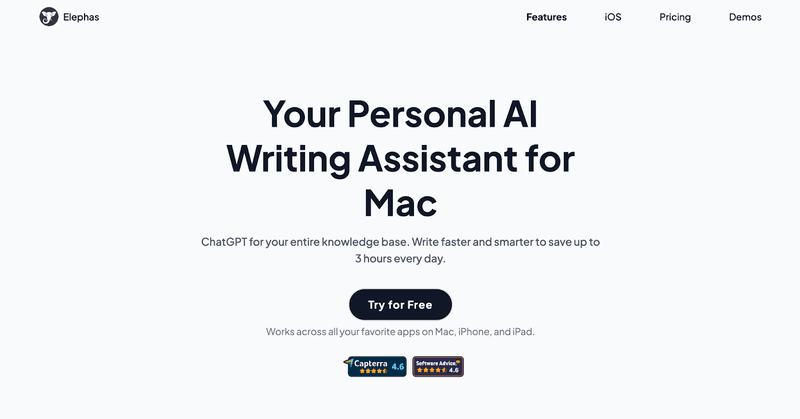
You know, I stumbled across this tool called Elephas the other day, and it's pretty cool. It's like having a writing buddy who's always there to help. Say you're working on a paper and you're stuck - Elephas can jump in and help you rewrite stuff or even come up with new ideas. The best part? It can switch between different writing styles.
One minute it's all professional, the next it's super friendly. Oh, and it's a lifesaver for grammar nerds like me - catches all those pesky typos. But here's the thing that really blew my mind: it actually learns how you write. After a while, it's like it gets inside your head. And get this - there's even a version for your phone. How cool is that?
ChatGPT:
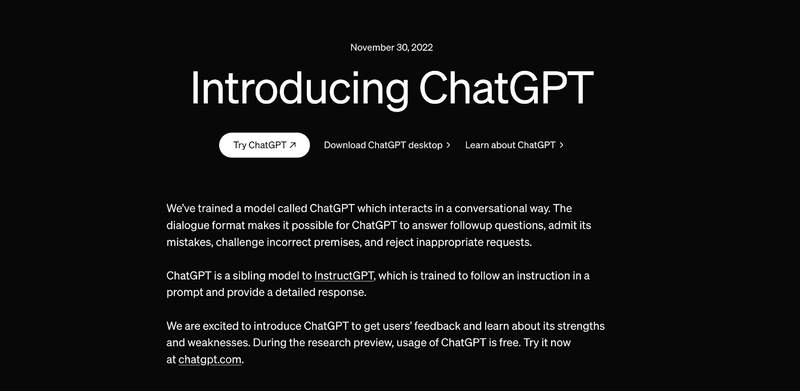
Okay, so let me tell you about ChatGPT. It's kind of like that friend we all wish we had - you know, the one who seems to know everything about everything? You can ask it pretty much anything, and it'll chat with you about it. But it's not just a know-it-all - it can actually help you write stuff, come up with ideas, even break down complicated topics.
The latest version, GPT-4o, is even cooler. It can look at pictures, speak different languages, and even crunch numbers for you. And the best part? A lot of it is free! It's like having a super smart study buddy available 24/7. Pretty neat, right?
Research Rabbit:
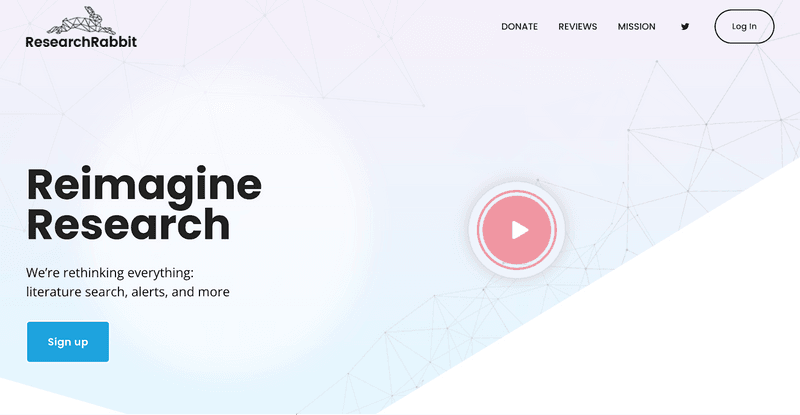
So, there's this tool called Research Rabbit that I've been using lately. It's a game-changer, especially when you're drowning in research papers. You know how sometimes you find one good paper and think, "I wish I could find more like this"? Well, that's exactly what Research Rabbit does. It's like it takes that paper and creates a family tree around it.
You can see which papers came before, which ones came after, and how they're all connected. And the best part? It's free! Perfect for when you're living on a student budget, right? Oh, and if you're working on a group project, you can share your paper collections with your teammates. It's like having your own personal research assistant.
Connected Papers:
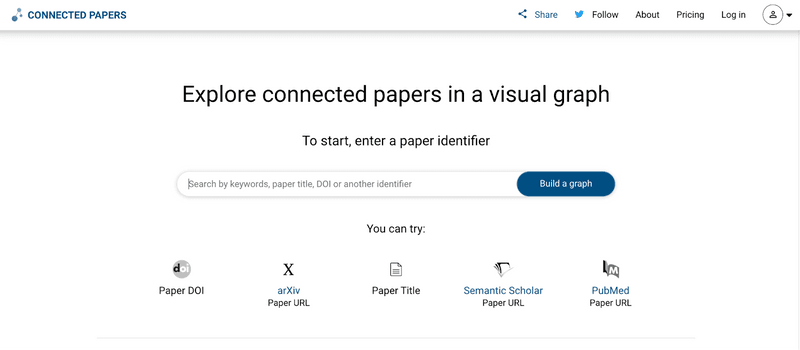
Have you heard about Connected Papers? It's this really cool tool that turns research into something that looks like a map of the stars. Each paper is like a star, and the bigger ones are the more important papers. The lines between them show how they're related. It's super helpful when you're trying to wrap your head around a new topic.
You can see at a glance which papers are the big deals in the field, and how ideas have spread over time. The interface is pretty user-friendly too - you don't need to be a tech wizard to figure it out. And they've got a free version, which is always a plus in my book. It's perfect for those times when you're starting a new project and need to get the lay of the land.
Lit Maps:
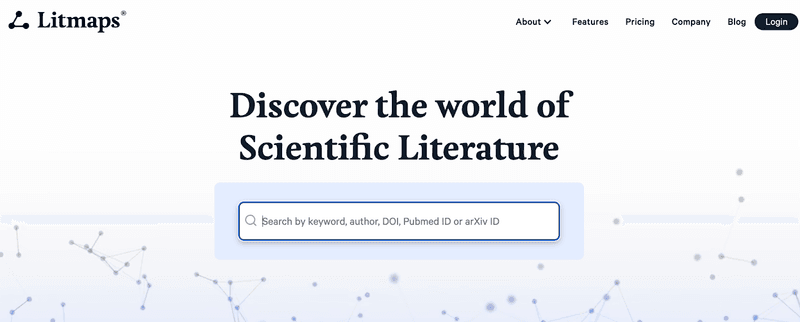
You know how sometimes you find a great paper, but then you're not sure where to go from there? Well, Litmaps is like having a research guru sitting next to you, pointing out all the good stuff you might want to check out next. But here's the really fun part - it doesn't just give you a boring list. It creates these visual maps that show how everything's connected. It's like seeing the whole research landscape spread out in front of you.
You can use it to find new papers, keep up with the latest stuff in your field, and even share your maps with other people. They've got a free version too, which is great for getting started. It's been super helpful for me in seeing the big picture of my research and finding connections I might have missed otherwise.
How Elephas Has Helped One of Our Community Researchers

We recently had a conversation with a researcher from the Elephas Community about the impact Elephas has had on his research workflow. Our actual goal was to gather customer feedback for improvements in Elephas, but we found that Elephas is already really helping most of our users effectively.
We want to share his workflow with everyone, and he was kind enough to share his complete workflow using Elephas for his research process. Although we couldn't actually mention his name, so we are going to refer to him as William.
William told us he's been using Elephas for about eight months now, and it's made a huge impact on his daily routine. "I used to spend days writing research papers and grant proposals," William said. "Now, with Elephas, I can complete my writing tasks in almost half the time."
Smart Write: Your Research Assistant
One of William's favourite features is the Smart Write tool. He explained, "When I need to draft an abstract or outline a new paper, I just input a few key concepts, and Elephas helps me expand on them. It's like having a super-smart research assistant who understands my field!"
Rewrite Modes: From Casual Notes to Publication-Ready
William also praised the different Rewrite Modes. "The Professional Mode is a game-changer," he smiled. "I can jot down my ideas quickly, then let Elephas refine them into formal academic language. It's perfect for journal submissions or conference presentations."
How to Use AI for Research: Super Brain Feature
We were curious about how to use AI for research tasks, so we asked William for an example. He told us about a recent literature review he had to conduct. "I used the Super Brain feature to upload some of my notes and relevant papers," William explained. "Then, when I was writing my review, Elephas helped me find connections between different studies and even suggested relevant citations. It was like having a massive, instantly searchable library right in my computer!"
On-the-Go Research Work
William mentioned that he often uses Elephas on his iPhone too. "Sometimes I get ideas when I'm in the lab or at a conference," he said. "With the Elephas AI Keyboard, I can quickly jot down thoughts or draft sections of my paper on the go. It's really improved my productivity."
Offline Capabilities: Research Anywhere
William was particularly excited about the offline functionality. "I often work in remote field sites with no internet," he shared. "With Elephas' offline mode, I can still use AI to help me write my field notes and initial analyses, even in the middle of nowhere!"
Room for Improvement?
We asked William if he had any suggestions for improving Elephas. He thought for a moment and then said, "You know, it's already pretty great. Maybe some more science-specific features, such as mind map creation? But honestly, it's so adaptable that I can usually make it work for whatever I need."
The Bottom Line: More Time for Discovery
Before we wrapped up our chat, we asked William how much time he thought Elephas has saved him. He grinned and said, "Oh, easily 20-25 hours a week. I'm spending less time writing and more time actually doing research. I've even been able to take on additional projects!"
It was fantastic to hear how to use AI for research has made a real difference in William's work and life. We're always excited to learn how our users are applying Elephas in their specific fields, and it's especially rewarding to see it helping in such a demanding profession as scientific research.
Have you found innovative ways to use Elephas in your work? We'd love to hear your story too! Share your experience in the comments and let us know how Elephas is helping you save time and boost your research productivity.
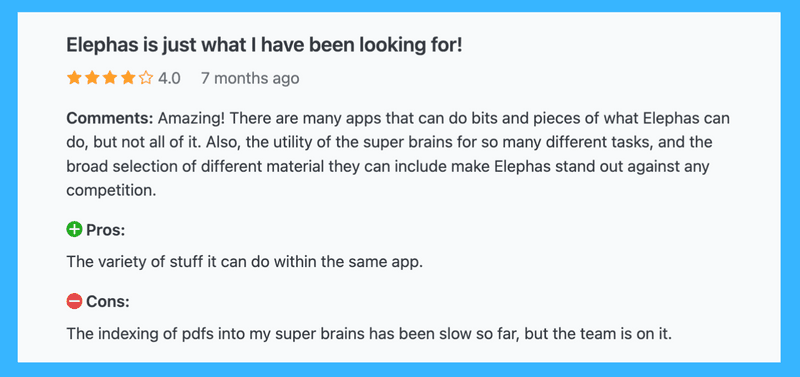
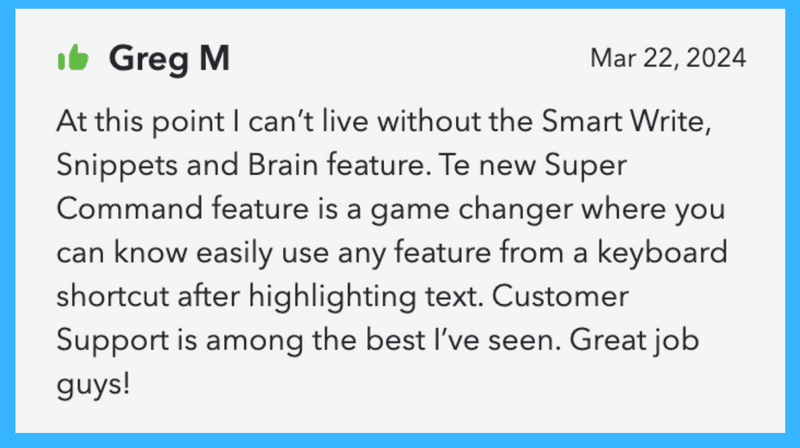
Conclusion
So, what do you think? Pretty cool how AI is changing the research game, right? Learning how to use AI for research is becoming essential for modern scholars. We've seen how tools like Elephas can be a real lifesaver for busy researchers like William. It's not about replacing the human touch – it's about giving you more time to do what you do best: thinking big and making discoveries.
Remember how William managed to save 20-25 hours a week? That's like getting an extra day in your week! Imagine what you could do with all that extra time. Maybe get deeper into your experiments, brainstorm new ideas, or even (gasp!) have a life outside the lab.
The best part is, these AI tools are getting smarter all the time. They're like helpful research buddies that never sleep and are always ready to lend a hand. Whether you're drowning in papers, struggling with writer's block, or working in the middle of nowhere, there's probably an AI tool that can help.
So why not give it a shot? Learning how to use AI for research can revolutionize your workflow. You might be surprised at how much easier your research life becomes. Who knows? You might even start looking forward to writing those papers! And hey, if you do try out Elephas or any other AI tool, we'd love to hear about it.
Your story could be the next one we share!
FAQs
1. Which is the best AI tool for research?
Elephas is the best AI tool for research, offering smart writing assistance, rewrite modes, and a Super Brain feature for organizing research materials. It works offline, integrates with iOS, and significantly reduces writing time, making it ideal for researchers across various fields.
2. How can AI be used in research?
AI in research can analyze large datasets, identify patterns, generate hypotheses, automate literature reviews, assist in writing papers, and suggest new research directions. It streamlines data collection, enhances analysis, and helps researchers focus on creative problem-solving and interpretation of results.
3. Can I use AI to write my research paper?
While AI can assist in writing research papers by generating outlines, suggesting citations, and improving language, it should not write the entire paper. Researchers should use AI tools to enhance their work, not replace their original thinking and analysis.
Comments
Your comment has been submitted